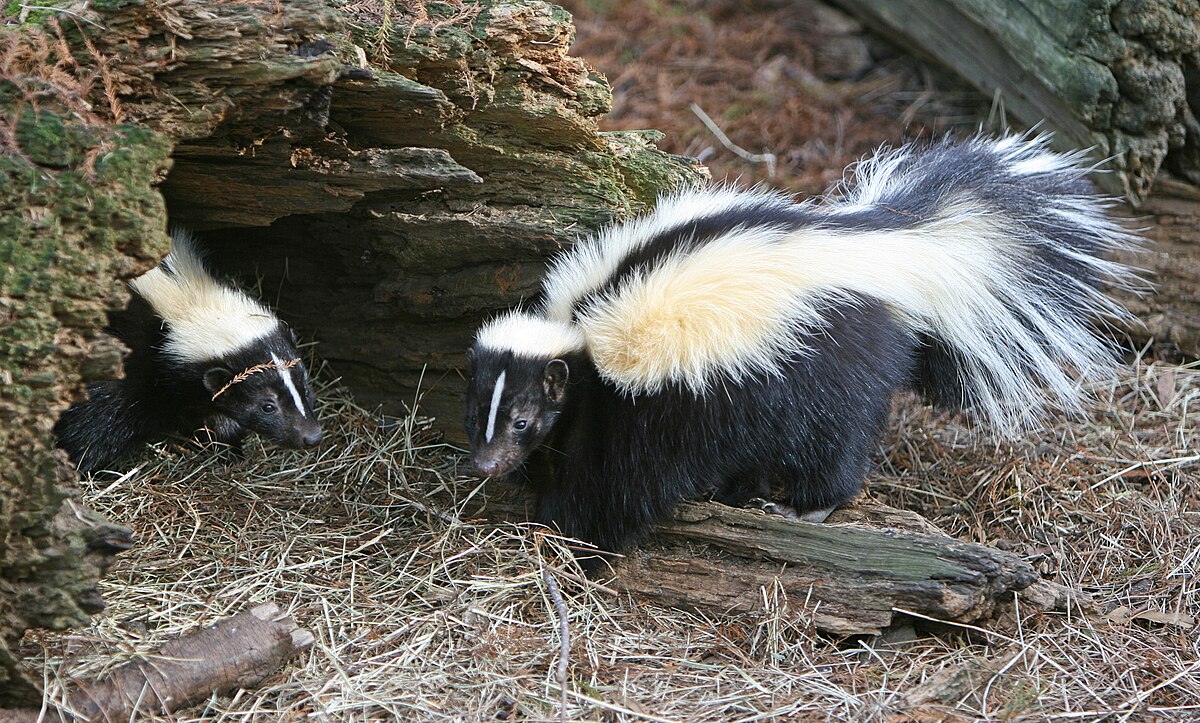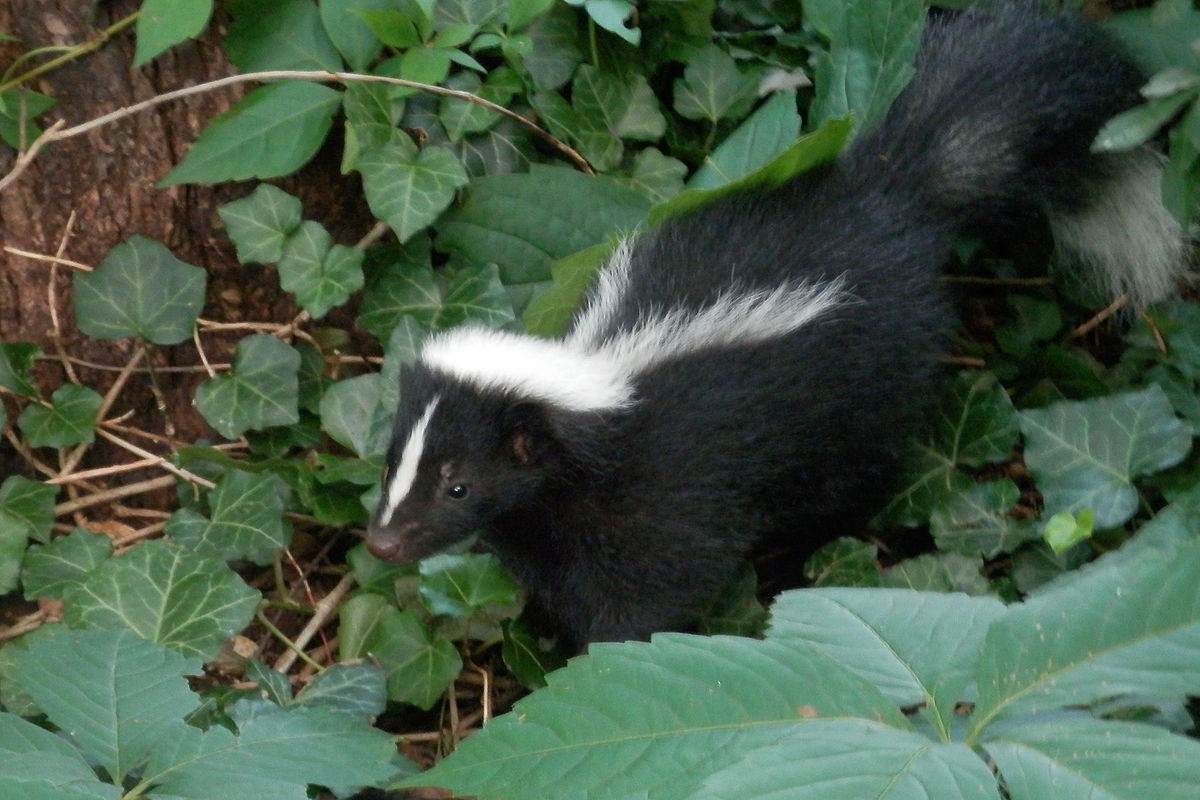So, you’re probably wondering, do skunks hibernate? Surprisingly, the answer is No. While these little critters might retreat into their dens during winter, staying put for weeks or even months, they’re not truly hibernating. As soon as the climate warms, they’re out and about again.
The Torpor State Explained: Skunk’s Pseudo-Hibernation

Instead of hibernation, skunks opt for something known as a torpor state — a lighter sleep that sees their metabolism, heart rate, and body temperature decrease. Skunks gain access to their den, often sharing this space with others, and seal the entrance. From a distance, they might seem like they’re hibernating. But in reality, they experience periodic awakenings when the temperature rises, even venturing outside their dens, before retreating back into torpor as temperatures drop.
Webster’s Definition of Torpor
Webster’s New Word Dictionary offers a fitting description of torpor –
“a state of motor and mental inactivity with partial or total insensibility; extreme sluggishness or stagnation of function”
Do Skunks Hibernate? Not Alone in Torpor

Various other creatures, such as raccoons, badgers, chipmunks, and ground squirrels, also enter torpor. In fact, even bears enter a state of torpor rather than true hibernation, despite common belief. For animals in torpor, there’s high vulnerability, underscoring why skunks seek deep dens with sealed entrances. Inside our cozy homes, pet skunks rarely have the need to enter torpor. Though they may sleep longer and demonstrate less activity during cold winter months, they typically remain alert and fairly active year-round.
Surviving Lean Times
Skunks and chipmunks enter torpor not just due to the chilly weather (after all, they have thick fur coats), but more so because food becomes scarce. As small creatures, they don’t store a lot of fuel and sleeping through scarce times aids their survival.
With Skunks Asleep, Other Animals Find Relief

Other animals can breathe a sigh of relief when skunks enter torpor. The skunk, a fairly fearless character, doesn’t run from much — potentially intimidating even bears and mountain lions. It’s mainly the horned owl that poses a threat, along with some larger hawks.
Now, You Know Skunks Don’t Hibernate
So, do skunks hibernate? Now you know the real story – they don’t truly hibernate. Instead, these interesting creatures enter a state known as torpor, a lighter sleep that helps them survive the chilly winter and scarce food supplies.